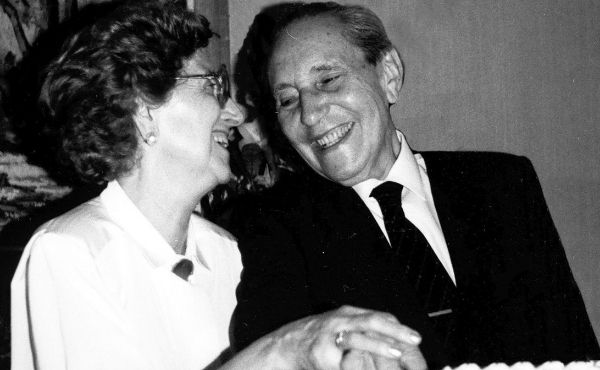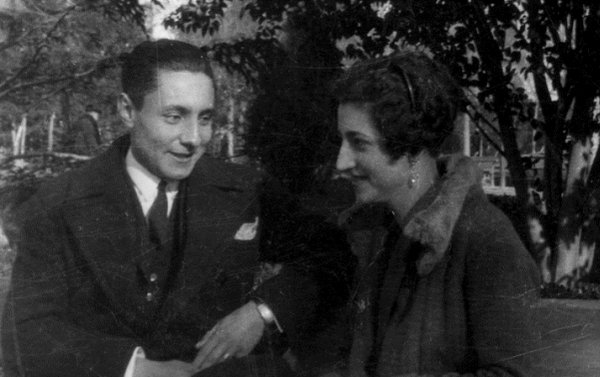Link to original article in Aleteia
Tomás and Paquita Alvira, two of the earliest married members of Opus Dei, strove to attain sanctity as a married couple and in their role as parents.
Tomás Alvira was one of a group of young men who crossed the Pyrenees Mountains on foot with Saint Josemaría Escrivá during the Spanish Civil War, fleeing anti-Catholic persecution to escape to a zone where they could practice their faith. In 1939, Tomás married Paquita Dominguez, and together the couple sought to live their vocation to marriage to the full. They had nine children and were held in high esteem by those who knew them for their example of love and generosity. Their cause of canonization was opened in 2009.
In what follows, their son Rafael Alvira describes seven ways his parents cared for their marriage and educated their children through their example.This list of tips for married couples is adapted from a talk he gave at the University of Piura in Lima, Peru.
1. Eagerness to love. My parents preserved their eagerness to love one another right to the end of their lives. A friend of one of my sisters told her that she was envious of my parents, because she would see them walking in the street and could tell that they still loved each other like when they were dating. As the years went by, my parents had the same eagerness that they had the day they got married, and their love was always increasing.
2. Attentiveness to others. They had a great capacity to be attentive to others. For example, both of them would open the door for me when I arrived. My mother gave each of her children a kiss when we got home. We saw it as a normal thing.

3. Teaching by example. My parents were convinced that the decisive factor in education is the atmosphere in which it takes place, and that the best pedagogy is indirect. The good example they gave us was very influential. This is how they passed on the faith to us. For example, they went to Mass and we saw them taking part with a devotion that left a mark on us. They showed us what God’s love means by winning us over with affection; they sacrificed themselves without saying anything in order to help us. And their spirit was contagious.
4. Teaching the kids to love each other. Both of them encouraged us to love each other a lot as brothers and sisters. This is something that continues being true today. I have one brother and six sisters (my oldest brother died when he was 5 years old).
5. Having a big heart. Both of my parents had a very big heart. Having a heart is not so easy. My father had a hard time correcting any of his children, but he realized that if he didn't do it, it would cause us harm. He corrected us without offending us. To really love, you have to have a heart. And the same happened with my father’s students. They realized that he loved them; they felt loved and were grateful.
6. Fostering friendship. My parents had many family friends, and we became very much a part of these families. They also invited our friends to our house a lot. They knew all our friends. They brought them into our home and let them experience our family atmosphere. It is not enough for parents to raise their children well: they also need to get to know their children’s friends. Otherwise, the good education they give can be ruined by bad friendships the children make.

7. Respect for freedom. My parents always had a great respect for our freedom. They never pushed us to make a specific decision. For example, at home my parents prayed the rosary every day. But they never forced us to pray it with them. They prayed it attentively, and although they invited us to join them, they never imposed it on us or insisted that we take part.
